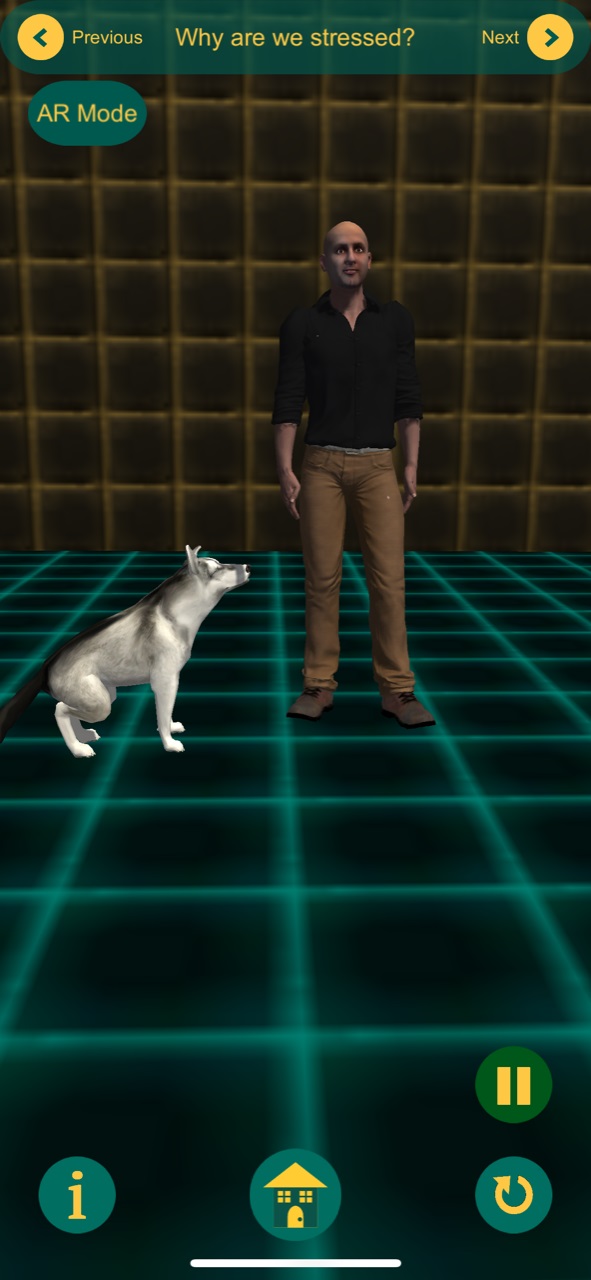Is the pandemic stressing you out? Don’t worry – there’s an app for that.

A team in the Department of Psychiatry and Behavioral Neurosciences at Wayne State University has created “Pandemic Stress Tips,” an augmented reality app that provides practical tips for dealing with the mental health challenges of COVID-19. The app uses a smartphone’s built-in Augmented Reality capabilities to bring insightful information from an expert in stress, trauma and anxiety. An avatar resembling Associate Professor Arash Javanbakht, M.D., and a dog “appear” in your home to provide advice on a variety of stressful scenarios programmed into the application.
Dr. Javanbakht is a psychiatrist and director of the Stress, Trauma, and Anxiety Research Clinic at the WSU School of Medicine. He provides advice on how to deal and cope with the everyday stressors brought about by a global pandemic.
“We talk about the mental stress of the pandemic and how to deal with it,” Dr. Javanbakht said. “The viewer can decide where to place the avatar in their environment, walk around it and see it from different angles, and decide his size, and can move between modules.”
The app is now available on the Google Play for Android at https://play.google.com/store/apps/details?id=com.starc.PandemicStressTips, and in the Apple app store at https://apps.apple.com/us/app/pandemic-stress-tips/id1516533701
Topics include:
“Why Are We Stressed?” which explains the ways the pandemic makes people feel frustrated, anxious and sad.
“Is it Okay to Complain?” which talks about the benefits and limits of complaining and sharing frustration.
“How to Cope,” which provides practical methods of coping with this stressful time, from how to follow the news to ways of maintaining routines and working out.
The app was developed to fulfill multiple requests from patients, the media and his Wayne State colleagues who asked the mental health care provider to share information on how to deal with stress caused by COVID-19.
STARC is dedicated to researching neurobiology of post-traumatic stress disorder and anxiety disorders, as well as offering and advancing cutting-edge treatments for these conditions.
“Since we have AR capability in our lab, my students Rakesh and Shantanu suggested we can help by using our AR programming skills and creating something more fun and interesting that can be used by a large group of people,” Dr. Javanbakht said. “We have been working on this for about a month, but Rakesh and Shantanu have been passionately working long hours on this. We did everything from scratch, in-house, and learned things for the first time. Often there were email and text communications happening after midnight about an exciting moment of solving a tough programming problem.”